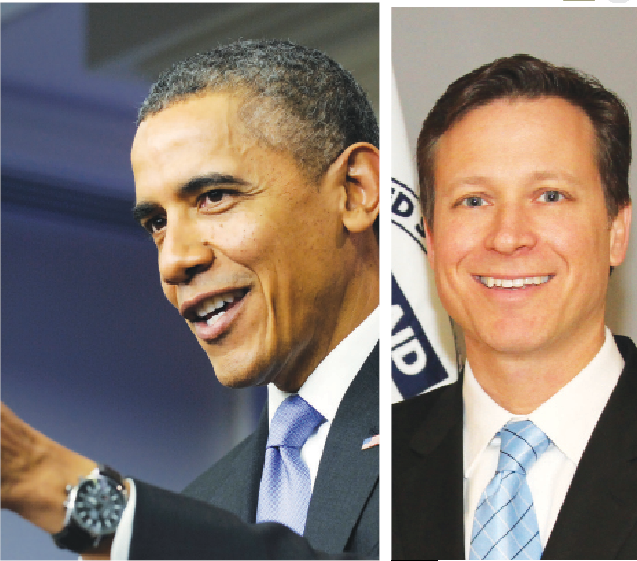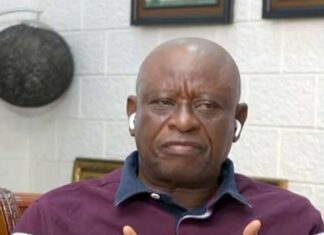United States Aid for International Development (USAID), which clocked 54 years on November 3, has been valuable in Africa’s chequered effort to exist. It celebrated with a fabulous package for rural parts of Africa. Nigerian NGOs got $250,000 aside $2.3 billion direct aid given to Aso Rock by White House. Correspondent, SAM NWOKORO, reports
In international politics, giving development assistance is strategic tool in geo-politics. Notwithstanding that African nations have long depended on western development assistance called economic aids since the 50s and 60s, it is commendable that these western benefactors have not relented in seeing African nations rise in the development ladder.
The need to see African nations key into laissez faire, perhaps, has compelled the rich nations of the Northern hemisphere to continue giving. Though it has been unverified the extent to which African leaders have mismanaged western aids they got in the past years, these donors continue to make aids and grants available to African economies for both political and business reasons.
According to Director General of the Nigerian Institute of International Affairs (NIIA), Professor Bola Akinterinwa: “Foreign aid is an effective diplomatic tool to compel loyalty from a sovereign authority to a powerful country. Aids serve both long, short and medium term purpose depending on the objectives and interests at stake at particular times.”
He cited the United States intervention in the liberation of Kuwait by the former President George Bush: “It was obvious to the world that whereas the United States then was intervening to preserve the lives and property of the Iraqi people who were reeling under the dictatorship and misrule of Saddam Hussein (now late), it was also clear that U.S. was preserving its economic interest, the supply route of crude oil from Kuwait because U.S. remained its priority customer, and American economy needed the crude supply from Kuwait.”
By this, it could be said that foreign aid is a matter of interest and quid pro quo.
Why USAID helps Africa
African nations have been led to embrace free enterprise. Most let loose their economy into private hands at the beginning of the century. There were weak institutions to husband liberalisation of the economy. This led the U.S., who had effectively propagated the good tiding in free market and democracy to virtually all parts of the world, to redouble its interest in Africa’s economic wellbeing through all kinds of assistance, both at official and private levels.
For instance, in 2000, the U.S. increased through the USAID Africa’s quota in the U.S. Diversity Visa Lottery by almost 100 per cent to enable African citizens access to U.S. citizenship, in practical demonstration of the global village concept and enjoy the opportunity embedded in the visa lottery.
Besides, the USAID led Washington to extend the New Partnership of African Development (NEPAD), an African economic empowerment initiative formulated by the Bill Clinton administration, to help African businesses access U.S. markets. The NEPAD timeframe, which started from 2000, lasted up to 2010, and was further extended to 2015.
Dr. Chris Nwankwo, Chief Executive Officer of Dolen Enterprises, a commodity export outfit in Onitsha, said: “The NEPAD trade window helped us to increase export to United States. Though we faced problem of packaging, regulations and certification of most of the things we exported, we nonetheless made some headway. It was unlike in the 1990s when we only shipped to European markets because of U.S. strict standards, especially when most Nigerian exporters deal only on perishable goods: cocoa pods, vegetables, garri, cassava etc. It was mainly for diaspora consumption and industrial use. But NEPAD helped while the regime lasted.”
Perhaps, it was in a bid to advance the policy objectives of NEPAD beyond mere search for markets for African produce that USAID came up with a more impactful bouquet of assistance to help African economies advance in a more fundamental and sustainable manner.
USAID’s African impact
USAID has been trying its bit to key African economies into fast-track development, especially in the area of infrastructure. That was why it helped in mentoring most African nations, Nigeria inclusive, in modern arts of governance such as the Public-Private Partnership (PPP) development model that involves leveraging on the finances and resources of private business operators. This method has helped African governments a great deal in bankrolling big projects.
Washington also understands the infrastructure deficiencies of African nations. Since electricity holds the key to economic growth, it has invested heavily in electricity projects in many African states via direct financial assistance to the governments and as grants. One of such is the Power Africa Initiative launched by President Barack Obama in 2012.
The Power Africa Initiative is a partnership among African governments, the U.S. government, the private sector and the donor community. It aims to double access to electricity in Sub-Saharan Africa, by building cleaner, more climate-resistant power plants. The coordinator, Andrew Herscowitz, in a recent interview, said USAID and partners in the initiative have invested funds and closed many deals capable of injecting 4,100 megawatts of electricity in Africa in 2015. According to him, “Obama has tripled the goal to 10,000 and 20 million connections to 30,000 megawatt and 60 million connections”.
USAID has helped Nigeria’s efforts at food security through the ‘Global Development Lab’ which has bred some smart entrepreneurs, even some hitherto anti-western business models. Some $90,000 was given to a Nigerian trainee under the programme which has helped in the hiring of tractors to rural farmers in the Nigerian agricultural belt up North. Malam Jeliel, the beneficiary, now teaches fellow farmers and engages in entrepreneurship mentoring.
Herscowitz, the U.S. government through USAID and about 100 private sector partners have pledged to develop nearly 16 gigawatt of critical 16 generation projects across some African countries as part of Power Africa, resulting in over $20 billion in commitment in new power generation.
“As part of Power Africa Initiative, its sub-theme, ‘Beyond the Grid Initiative’, over 40 private sector partners are focused primarily on developing mini-grid and distributed power services and infrastructure in Sub-Saharan Africa’s rural and peri-urban populations,” he also disclosed.
Apart from renovating schools, supporting voluntary counselling and testing for HIV/AIDS, USAID has also helped Sorghum farmers in most parts of Northern Nigeria improve yields.
Last week, USAID held the ‘2015 Global Education Summit’ to renew lessons learnt in helping Africa and how to apply those lessons in future programmes. The event, which held between November 2 and 4, had in attendance USAID education officers and partners as well as high level Ministry of Education leaders from Africa, Asia, Latin America and the Caribbean.
Shifting methods
In recent time, USAID has fine-tuned its approach to aids therapy in Africa. In Nigeria, for instance, the USAID as part of its anniversary gave a largesse of $25,000 to a network of Nigerian non-governmental organisations (NGOs) to implement sundry development projects in 20 states’ rural communities nationwide. Such projects include construction of rural roads, provision of electricity to unreached hinterlands, provision of boreholes and such little works such as building of classrooms in secondary and primary schools.
It is perceived that the western aid donors may have realised that the corruption profile of African bureaucrats made previous aid not to achieve objectives, hence they have chosen to take into consideration clamour for use of NGOs and private partners in reaching to more needy people.
According to a rights activist, Chucks Ngoka, who leads Nigeria Environmental Justice Forum: “There should be the new methods if the developed nations hope to meet the 2030 Sustainable Development Goals (SDGs). Our governments, not just in Nigeria but in Africa, Asia and Latin America have high corruption indices. Aids end up in the pockets of political office-holders, and are poorly accounted for. Effective use of local partners makes aids advances reach targeted groups and populace and I think that is what USAID had done.”
Why Nigeria matters
Nigeria ranks as one of U.S.’s top friendly nations. Washington’s involvement in Nigerian affairs predate Nigeria’s Independence, though Nigeria was a former British colony.
White House had restricted her bilateral engagement to commerce until Nigeria returned to democracy in 1979, and nurtured it further at the second coming of civilian government in 1999 in which she played critical role in bringing about.
USAID remains Washington’s most effective geo-political influence tool in Africa, especially in Nigeria, more than any other foreign power. USAID’s investments at official and private levels in Nigeria, diplomacy experts posit, will pay off in the long run to the advantage in geo-regional influence in Africa more than any other foreign power, as Nigeria nurtures her growth process within the ambit of stable democracy. Obviously, Nigeria and African nations have had a valuable friendship with USAID.












